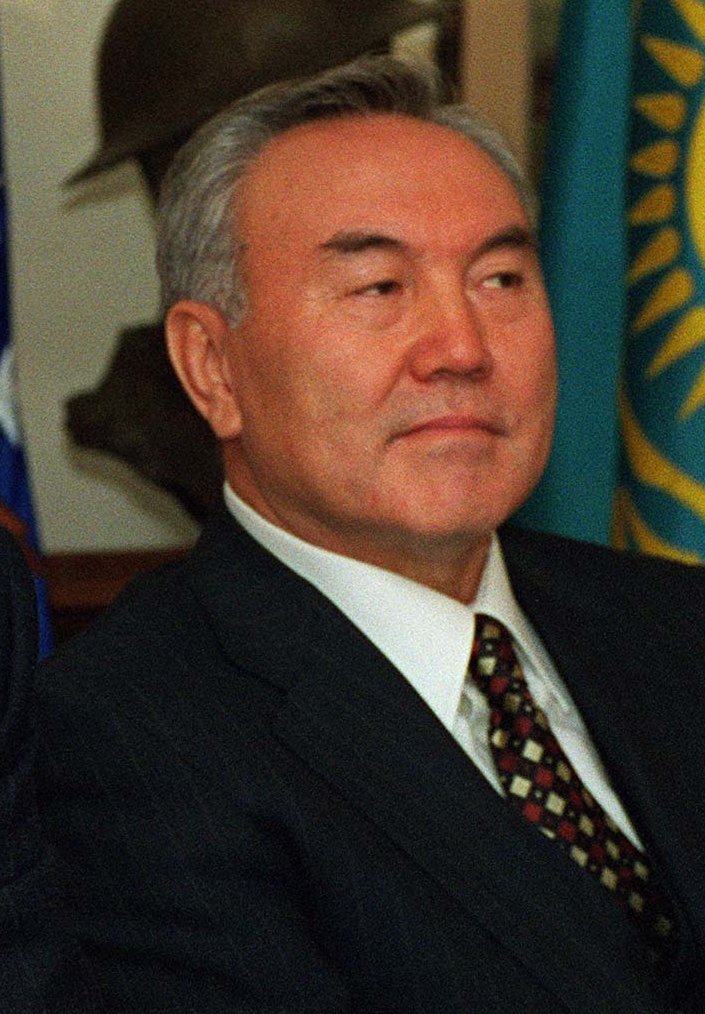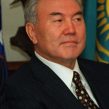
NAZARBAYEV OFFERS MEDVEDEV SUPPORT
Publication: Eurasia Daily Monitor Volume: 5 Issue: 187
By:

During a meeting with Russian President Dmitry Medvedev in Aktobe, Kazakhstan, on September 22, Kazakh President Nursultan Nazarbayev offered his support to Russia with regard to the conflict in Georgia. Security issues were discussed at the presidential level during the fifth international forum of the heads of the two countries’ border regions. The situation in the South Caucasus was considered within the multilateral format of the SCO, CSTO and CICA, as well as bilaterally for combating “modern threats.” The tone of Nazarbayev’s support was low key but nonetheless reasonably clear:
“Our stance on the situation in the Caucasus was clearly expressed during bilateral meetings within the framework of the SCO and the CSTO. They generally coincide and are aimed at the speediest settlement of the conflict and development of efficient measures to prevent bloodshed in the future. We have a general understanding of the situation, which helps to find mutually acceptable solutions. We clearly expressed our stance on the events in the Caucasus. During the CSTO meetings, we agreed that members of this organization would by no means support anti-Russian rhetoric” (Kazakhstan Today website, September 23).
Kazakhstan’s position over the Russian military operation in Georgia has been distinctive from the generally more cautious approach of other countries in Central Asia. After the initial remarks made to Prime Minister Putin, when Nazarbayev remarked on the timing of the Georgian military attack in South Ossetia coinciding with the Olympic Games, there has been an attempt by Astana to balance its stance on Georgia with its wider foreign policy interests and to avoid being compelled to choose sides or recognize the independence of Abkhazia and South Ossetia. Now it appears that Nazarbayev wants to distance Kazakhstan from any hint of “anti-Russian rhetoric,” by which he can only refer to the widespread Western adoption of a hostile and critical stance toward Moscow. It cannot be denied that Kazakhstan is in the process of strengthening its bilateral relations with Russia across a wide range of issues of mutual interest, yet Nazarbayev’s remarks and the high praise offered by Medvedev for the enduring relationship between the countries suggest that despite the “damage” to Russia’s international image as a consequence of the Georgian war and its recognition of the independence of the new states, Kazakhstan interprets those events differently from its Western partners.
Medvedev explained that Russia and Kazakhstan intended to develop bilateral dialogue, focusing on cooperation in the areas of innovation and interregional cooperation. “We value the partnership with the Republic of Kazakhstan and intend to develop further the regular, mutually beneficial Russian-Kazakh dialogue, which is considered at present to be a dialogue between strategic partners,” Medvedev said. Taking an inter-regional approach to encourage further development of trading ties, Medvedev also suggested that bilateral trade would reach $20 billion by the end of 2008 (ITAR-TASS, September 22). A number of agreements on cooperation in trade and economics, in scientific and technical areas, and in the cultural and humanitarian spheres were signed between the border regions. Transportation ventures are to include cooperation on improving existing roads linking western China with Europe. Vnesheconombank (Russia’s Foreign economic bank) and the Kazakh Development Bank signed an agreement on launching a credit line between them. The Russian car manufacturer AvtoVAZ, Kazakh car producer Azia Avto, and the Eurasian Development Bank signed an agreement on a strategic partnership (Interfax, September 22).
Medvedev noted that “Cooperation between Russia and Kazakhstan in the sphere of energy directly relates to our interests in the sphere of regional security, which cannot be in the interest of only one country” (ITAR-TASS, September 22). Both leaders promised to increase production of raw hydrocarbons. Thus, Kazakhstan’s partnership with Russia, rooted in energy issues, is emerging unscathed by the recent crisis. Moreover, at a time when Western countries and NATO are seeking to enhance defense and security cooperation with Kazakhstan, Moscow is clearly paying attention to this crucial sector.
During recent joint military exercises held in Kazakhstan, airborne troops from both countries rehearsed counter-terrorism assaults. The scenario involved a terrorist gang numbering in the hundreds, penetrating the Kazakh border from a neighboring state. Generals and dignitaries gathered to observe air strikes and the movement of troops by helicopter, as the joint military force honed its capabilities to move large numbers of troops by air and rail over vast distances within days to counter such threats. Among the speakers at the briefings were Kazakh Defense Minister Daniyal Akhmetov; Commander of the Kazakh Airmobile Troops Murat Maykeyev, who noted that the two countries’ senior commanders knew each other well but that this exercise was a good opportunity for junior officers to make contact; and Aydyn Aysharip, a battalion commander of the Kazakh Airmobile Troops. These commanders and the forces they represented also played important roles with the U.S. and U.K. as part of Kazakhstan’s peacekeeping force during the Steppe Eagle military exercise in September 2008 (Rossiya TV, Moscow, September 13).
Nazarbayev understands that Astana’s relations with Moscow must remain strong and a strategic priority for the future development of Kazakhstan’s security policies. He would like to avoid making tough political decisions relating to the present crisis and its implications for Western political relations with Russia. He will therefore eschew recognizing Abkhazia and South Ossetia for the time being, just as other Central Asian states did over the independence of Kosovo. But he may be aware of the impending Western rush to prioritize political and defense relations with Kazakhstan as a counterbalance to Russia, should there be a further deterioration in Moscow’s relations with the West. At this point, as the fall-out over the conflict continues to place a strain on these relationships, Nazarbayev wants to avoid any hint of “anti-Russian rhetoric” while remaining curiously silent about “anti-Western rhetoric.”




